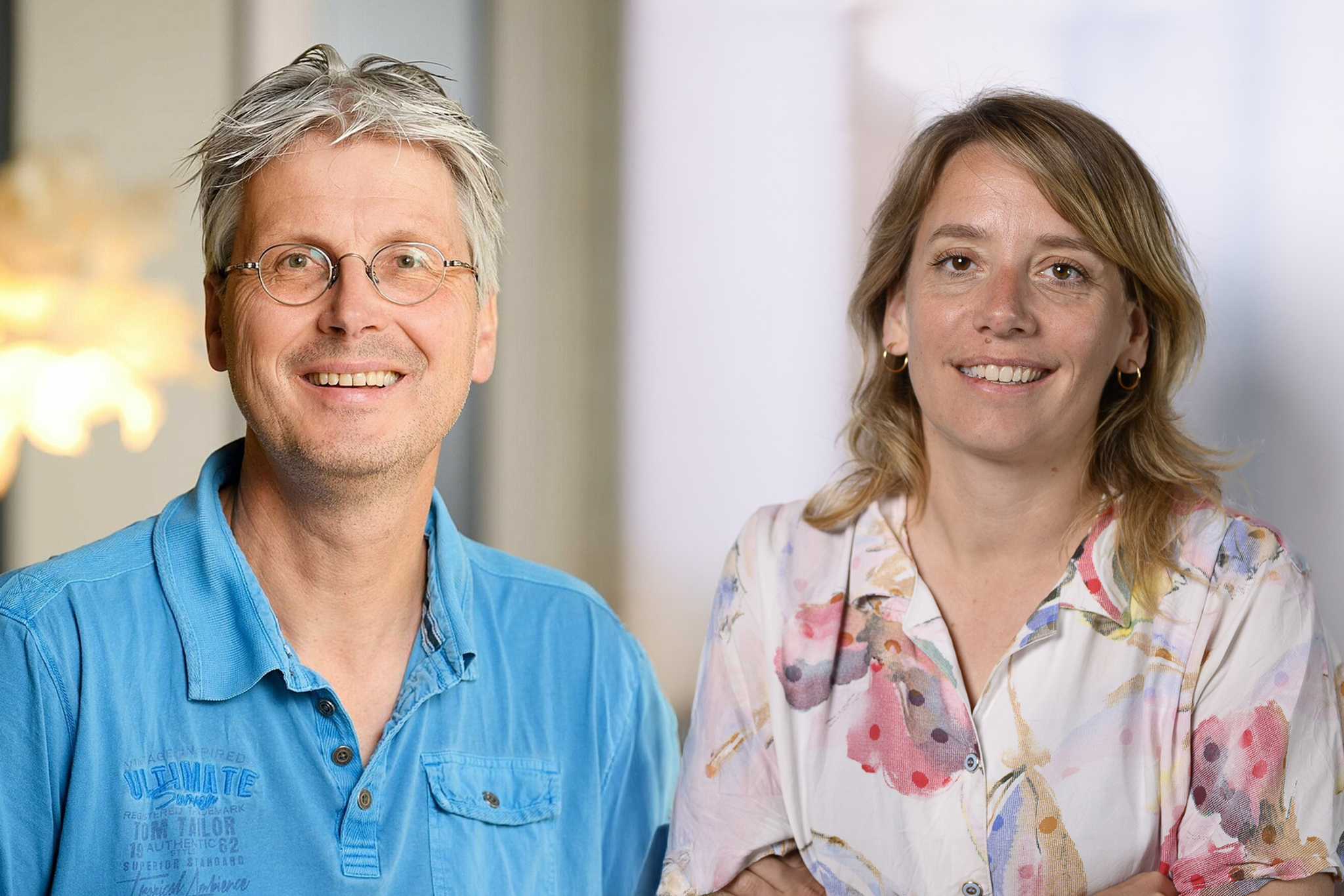Universities: ‘Startup success is also in our interest’
19 February 2025

Just like last year, the Faculty of Impact has thirteen spots available in 2026 for entrepreneurial scientists who want to take their invention to the market. Until June 3, they can apply for a NWO grant that not only offers them intensive entrepreneurial training, but also two years of academic job security. Universities are calling on applicants to apply as soon as possible with their ideas. And: ‘Come to us, we can offer you all the support you need.’
Letters of support from the supervisor, the department director and from the knowledge transfer office (KTO): an application is only complete and admissible when the submitter is assured of broad support from his or her knowledge institution. ‘Therefore, involve us as early as possible’, Rosalie Driessen and Jeroen van Woerden stress. They are respectively business developer at TU Delft’s Innovation & Impact Centre and director of startup platform The Gate at TU Eindhoven. Both universities are well represented in the first batches of the Faculty of Impact and have thus already gained quite some experience, both with the program itself and with the application process.
Importance of good agreements
‘Sometimes there seems to be some suspicion from researchers toward their university’, Driessen notes. ‘They mistakenly think that we want to maintain an unnecessary grip or control or even claim their ideas, which makes them afraid to lose their freedom. The opposite is true: we want nothing more than for them to become successful with their startup and eventually be able to stand on their own two feet. But it is in everyone’s interest that we make good agreements about this, that all rights around intellectual property are properly taken care of, that there can be no question of state support afterwards. We need each other and that is why it is important that we act together throughout the process. As allies, with the same goal: that academic innovations find their way to the market more often.’
Come to us early
Jeroen van Woerden endorses this wholeheartedly. He urges scientists not to wait too long with preparations and with involving the right people within their institution. ‘Whoever only comes to me at the last minute for an autograph, I send away. I take responsibility for you, but it has to come from both sides. We are there to create opportunities, not barriers. Our business developers are eager to help: by sitting down with candidates early, preparing the application properly, encouraging, training their presentations. That’s why my call is: come to us early. Be open to our feedback, show that you want to learn. And above all, work together. You are doing this as an employee of the university and that also means that those colleagues around you are available. And those colleagues are proud that you’re doing this.’
Entrepreneurial attitude
Rosalie also mentions this openness as an important precondition. ‘My advice is to also adopt an entrepreneurial attitude throughout the entire run-up, for example in finding the right people you need internally to help you. This is certainly not always easy, it can be quite a search within the different parts of the university and at each institution things are organised differently. Moreover, the speed at which you want to move forward as a startup is higher than at the university. But that is precisely why it is good to realise that you can take a role in that yourself. Put energy into that, don’t be too reserved, don’t assume that others will take care of it for you. But also know that once you have a really good idea and once you’re on good terms with the right people, we’ll do everything we can to help you move forward as best we can.’ And that doesn’t stop once someone is accepted into the program, she demonstrates herself. For example, she regularly consults with Carlos de Lannoy, who was admitted to the second batch from Delft University of Technology.
Safe and well supported
Jeroen van Woerden also shows personal commitment to the Eindhoven fellows as well as to the Faculty of Impact itself. ‘We invested in it from the beginning because we believe it can be a great tool in the entire entrepreneurial journey of scientists. Where do you get the opportunity to take the first steps toward entrepreneurship so safely and so well guided? But we need to properly integrate it into the existing landscape, embed it into incubator programs and most importantly, use the learning effects smartly. That’s something we are oddly enough lacking in academia. To students we are a learning environment, but to ourselves much less so. Continuous evaluation, looking at what goes well and adjusting where necessary, that is far too little in our mindset. I am very much in favour of building that into this program. That way we can develop it into a really good instrument that we can use for many years.